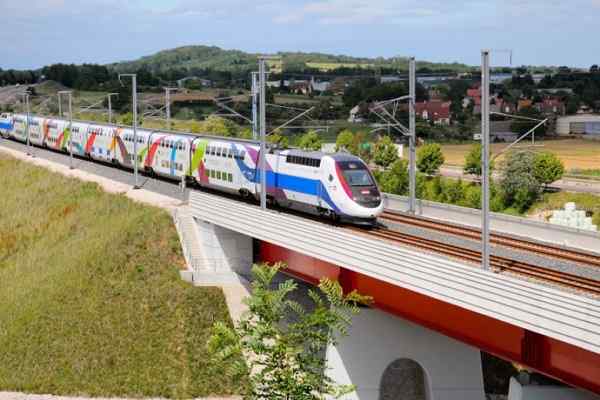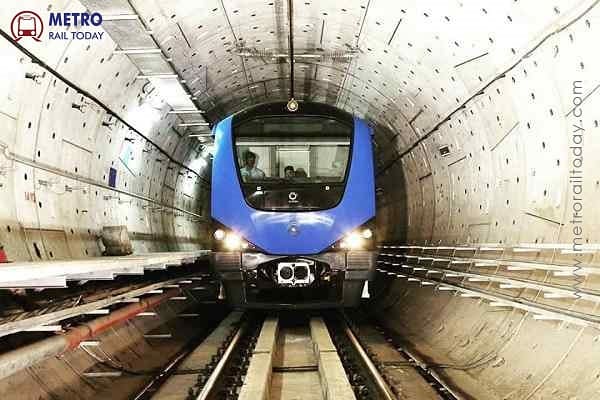 CMRL achieves second Tunnel Breakthrough at Thirumayilai for Chennai Metro Phase 2 Corridor 4
CMRL achieves second Tunnel Breakthrough at Thirumayilai for Chennai Metro Phase 2 Corridor 4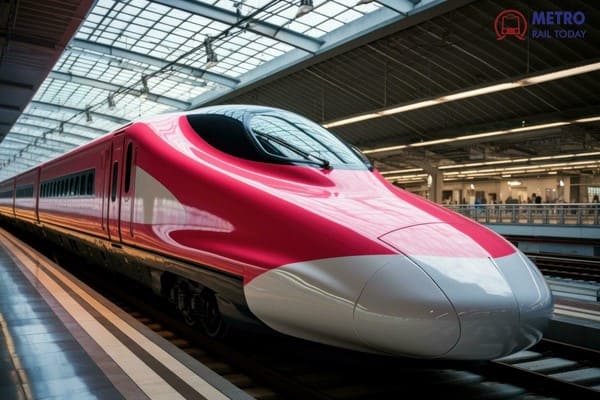 NHSRCL invites Single Tender from BEML for Bullet Train Rolling Stock Package
NHSRCL invites Single Tender from BEML for Bullet Train Rolling Stock Package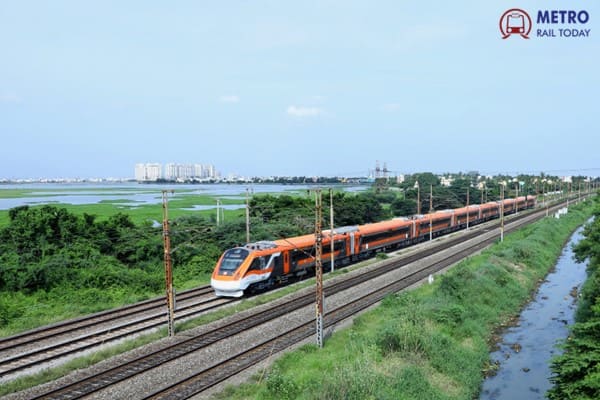 Railway Minister reviews progress of Ahmedabad–Dholera Semi High-Speed Rail Project
Railway Minister reviews progress of Ahmedabad–Dholera Semi High-Speed Rail Project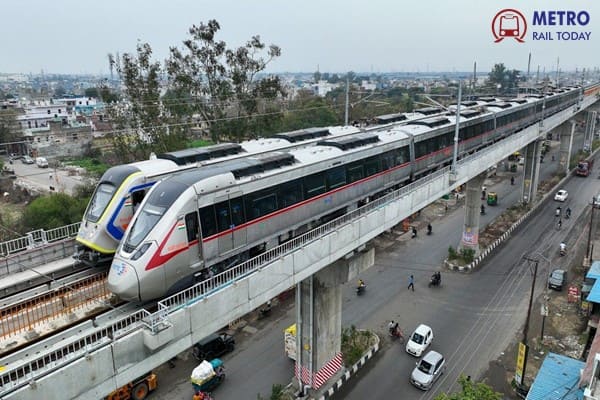 National Planning Group reviews key Rail & Metro projects under PM GatiShakti
National Planning Group reviews key Rail & Metro projects under PM GatiShakti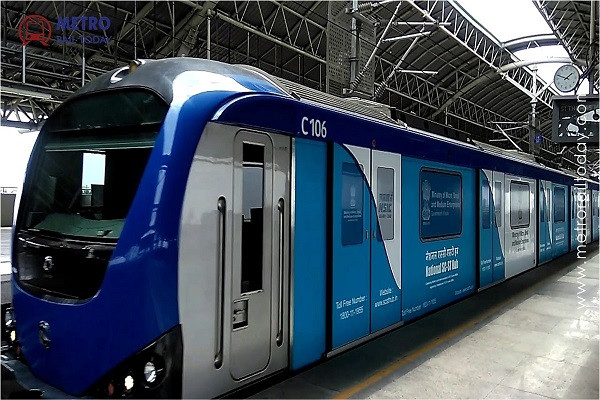 CMRS approves Driverless Metro Operations on first stretch of Chennai Metro Phase 2 Corridor 4
CMRS approves Driverless Metro Operations on first stretch of Chennai Metro Phase 2 Corridor 4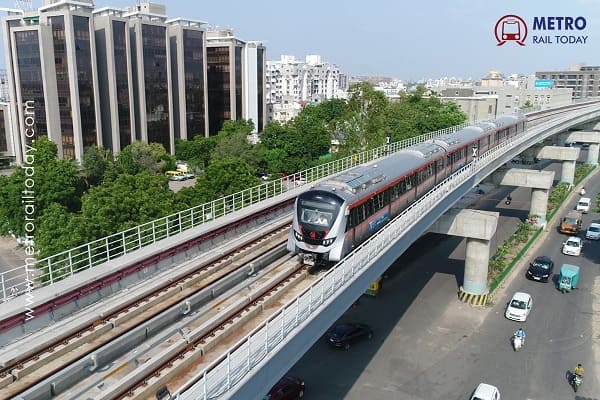 J Kumar Infraprojects completes Final Tunnel Breakthrough for Surat Metro Phase 1 Project
J Kumar Infraprojects completes Final Tunnel Breakthrough for Surat Metro Phase 1 Project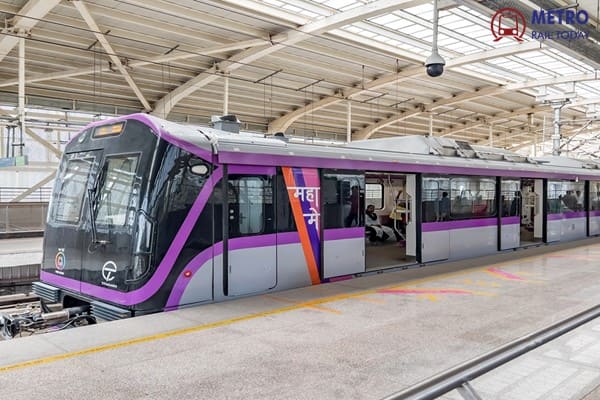 Apurvakriti Infrastructure awarded Ballastless Track Contract for Pune Metro Reach-1 Extension
Apurvakriti Infrastructure awarded Ballastless Track Contract for Pune Metro Reach-1 Extension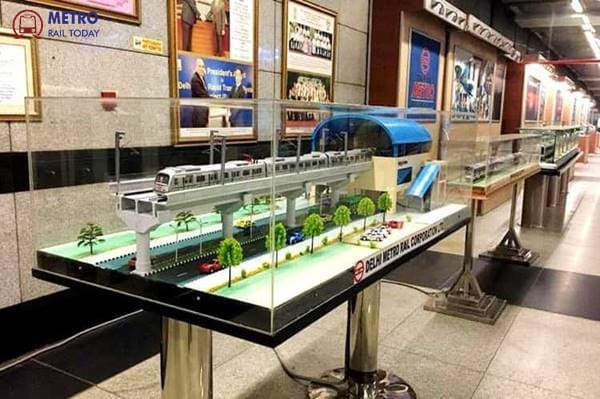 SAM India Builtwell bags first ₹222.76 Crore Civil Contract for Delhi Metro Phase V
SAM India Builtwell bags first ₹222.76 Crore Civil Contract for Delhi Metro Phase V HRIDC conducts Investors Pre-Bid Meeting for Haryana Orbital Rail Corridor
HRIDC conducts Investors Pre-Bid Meeting for Haryana Orbital Rail Corridor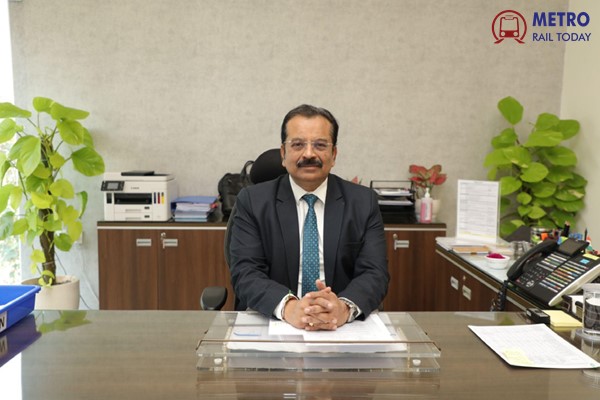 NCRTC Chief Shalabh Goel appointed as General Manager of Central Railway
NCRTC Chief Shalabh Goel appointed as General Manager of Central Railway
India’s First Hyperloop Test Track launched at IIT Madras: A Game-Changer for High-Speed Travel
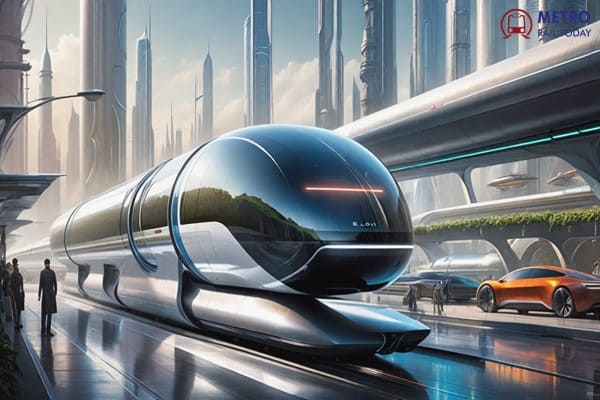
Chennai, India (Metro Rail Today): India has taken a giant leap towards the future of high-speed transportation with the completion of its first indigenous Hyperloop test track at IIT Madras’ Discovery Campus in Thayur. This milestone sets the stage for a groundbreaking revolution in travel, with the potential to transform how people and goods are transported across the country.
On Thursday, Union Railway Minister Ashwini Vaishnaw announced the successful completion of the 410-meter test track, marking a significant step forward in the development of Hyperloop technology in India. Sharing a video of the track's progress, Vaishnaw highlighted the importance of this achievement in the context of India’s broader efforts to modernize and innovate its transport infrastructure. The project is the result of a close collaboration between Indian Railways, IIT Madras' Avishkar Hyperloop Team, and TuTr Hyperloop, showcasing India's growing expertise in cutting-edge transportation technologies.
What is Hyperloop Technology?
Hyperloop is a revolutionary transportation system that uses magnetic levitation to propel pods through low-pressure tubes at speeds that can exceed 1,100 km/h, potentially making it one of the fastest modes of travel. Unlike traditional trains or cars, which rely on wheels and friction, Hyperloop pods will glide within vacuum-like tubes, creating a frictionless environment that drastically increases speed while improving energy efficiency.
The system’s eco-friendly design is another standout feature. Hyperloop technology uses far less energy compared to conventional modes of transport like high-speed trains and planes, bringing India closer to its carbon-neutral goals. By minimizing energy consumption and emissions, it holds the promise of transforming the country’s transport infrastructure while contributing to sustainability.
A Collaborative Effort: IIT Madras and Indian Railways Join Forces
The development of this test track is a testament to the power of collaboration between various stakeholders. The IIT Madras Avishkar Hyperloop Team, one of the country’s leading innovators in transportation research, has been at the forefront of this project. Working alongside Indian Railways and TuTr Hyperloop, a global leader in transportation technology, the team has successfully built the test track that will serve as a platform for further research and development in Hyperloop technology.
The completion of the 410-meter test track is an essential first step towards realizing the full potential of Hyperloop in India. Dr. Kamakoti Veezhinathan, Director of IIT Madras, emphasized the significance of studying high-speed travel in vacuum tubes. According to Dr. Kamakoti, the research will focus not only on passenger transport but also on the feasibility of using Hyperloop for freight. Safety protocols will be strictly adhered to during testing, ensuring the technology’s readiness for large-scale adoption.
The Future of Hyperloop in India
The successful launch of the test track brings India one step closer to realizing the vision of Hyperloop as a viable mode of transportation. If everything proceeds according to plan, the first commercial Hyperloop routes could be operational within just two and a half years. This rapid timeline reflects the urgency and ambition with which India is pursuing this transformative technology.
Once fully developed, Hyperloop could revolutionize travel in India. The pods, capable of reaching speeds up to 1,100 km/h, will significantly cut down travel times between major cities. Imagine traveling from Mumbai to Delhi in just 55 minutes or from Bengaluru to Chennai in under 30 minutes. The potential for reducing congestion, lowering travel costs, and enhancing connectivity between regions is immense.
Environmental and Economic Impact
Hyperloop technology is poised to play a pivotal role in India’s efforts to reduce its carbon footprint. With its energy-efficient design and reduced reliance on fossil fuels, Hyperloop could become a key player in the nation’s move towards sustainable, low-emission transportation systems. In a country where traffic congestion and pollution are major concerns, Hyperloop presents a viable solution for environmentally conscious travel.
Additionally, the Hyperloop system could bring significant economic benefits. The construction and operation of Hyperloop routes will create numerous jobs and stimulate economic growth in regions where these routes are implemented. By providing a faster and more efficient way to move people and goods, Hyperloop could have far-reaching effects on industries such as logistics, tourism, and commerce.
India's Vision for the Future of Transport
The completion of the Hyperloop test track at IIT Madras underscores India’s commitment to leading the way in advanced transportation systems. Following on the heels of other major infrastructure projects like the Bullet Train and Hydrogen Train tests, the Hyperloop project is part of India’s broader vision to modernize its transportation sector.
The Indian government’s focus on developing next-generation transport systems aligns with its goal of improving infrastructure, promoting sustainability, and creating a high-tech economy. With this first successful test track in place, India is poised to be a global leader in Hyperloop technology and innovation, offering a glimpse into the future of high-speed travel.
A Bright Future for Hyperloop in India
The completion of the Hyperloop test track at IIT Madras is just the beginning of what could be a revolutionary shift in the way India approaches transportation. With its potential to offer ultra-fast travel, reduce environmental impact, and transform the nation’s transport landscape, Hyperloop is poised to change the way Indians move across the country.
As development continues and future testing takes place, India’s ambitious goals for Hyperloop technology are within reach. With the expertise of IIT Madras, Indian Railways, and international partners, the dream of 1,100 km/h travel is one step closer to reality, and it promises to reshape the future of Indian transportation for generations to come.






